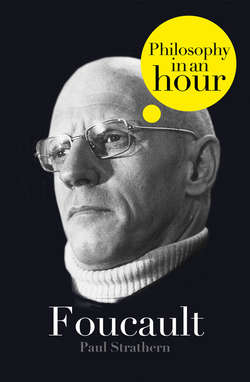Читать книгу Foucault: Philosophy in an Hour - Paul Strathern - Страница 4
Introduction
ОглавлениеFoucault was not a philosopher in the classical tradition. Even so, at one stage in his life he was regarded in some quarters as the new Kant – an absurdly overblown estimation. But this was hardly Foucault’s fault (even if he did little to discourage such opinions). It was also hardly his fault that the very possibility of being a classical philosopher was completely beyond him. This is no mere intellectual judgment. The fact is, Wittgenstein had to all intents and purposes brought philosophy in the classical tradition to a close. Wittgenstein had insisted there was no longer any such thing as philosophy – just philosophising. Most major philosophical questions were the result of linguistic errors. Untangle the mistake, and the question simply disappeared. And any remaining questions were simply unanswerable (or, more correctly, unaskable).
But a variant of the classical philosophical tradition did persist in continental Europe, in the work of Heidegger. This claimed to operate beyond Wittgensteinian realms, beyond the reach of logic, analysing the very grounds of our thought and apprehension. Foucault was heavily influenced by this tradition. It led him to uncover how philosophy, and indeed all ‘knowledges’, arrive at their versions of the truth. He showed that such ‘truths’ depended largely upon the assumptions, or mind-set, of the age in which they were promulgated.
Foucault set about his task like a historian rather than a philosopher. Painstakingly he researched original documents from the period he was investigating. These revealed firsthand the society, knowledge, and power structure of the age in question. Foucault concluded that knowledge and power were so closely related that he collated them in his term ‘power/knowledge’. This was the central issue of his philosophy. But in reaching it, and investigating its implications, he covered a wide range of often sensational material. Madness, sexuality, discipline and punishment – the history of such topics was considered essential to his argument. Add to this the relation of these topics to his personal life, and you have the most sensational philosopher of modern times.
Yet how much of actual philosophical worth was contained within all this sensationalism? Nearly twenty years after his death, reactions to this question remain sharply divided. Philosophical oblivion is easily attained: the fact that Foucault is still being discussed at all is recognition of a sort. How much longer this state of affairs will continue is up to us to decide.
